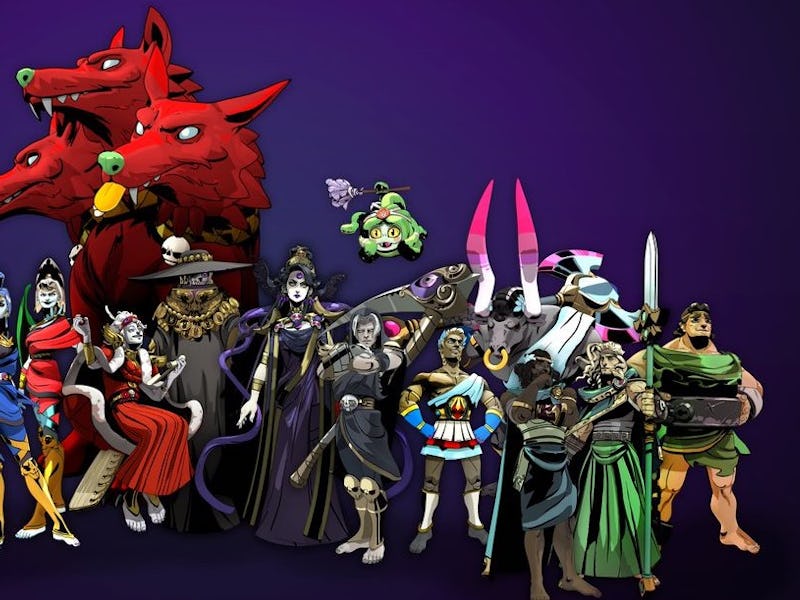2020's most beautiful video game makes diversity divine
It’s rare to find a game this sexy.

From the moment you boot up Hades, the visuals and music exude an overwhelming confidence.
Hades knows exactly what it wants to be and how to get there. Character design, music, and environment all contribute to crafting the unique aesthetic of Supergiant Games’ mythologically-inspired world. Each element — the character design, diversity, and music — contributes something distinct. When shown together, Hades expands the Greek pantheon in perhaps the most meaningful way since Disney’s Hercules or the musical Hadestown.
What were your favorite games and gaming moments of 2020? Take our poll!
Hades will immediately grab your eye with its stunning character designs, which are consistently unique and unconventional ways. There are naturally appealing characters like Zagreus and Thanatos who both have chiseled jawlines, ripped abs, that fit in conventional beauty standards. Every character is consciously trying their best to be beautiful. Demeter is an elderly character who maintains a dignified poise and intricate hairdo accentuated by the perfect amount of makeup.
Orpheus and Eurydice
Even mythical, inhuman characters like Dusa (a gorgon), Asterius (a minotaur), and Eurydice (an oak nymph) embody this vision of beauty. Dusa wraps her snake hair to imitate flowing locks; Asterius’ mane is styled like an Elvis pompadour; Eurydice has an afro composed of tree branches.
The beauty of Hades dovetails with the classical understanding of the Ancient Greek as a sexually liberated people. It’s rare to find a game that is so unabashedly sexy. Essentially, every character would look right at home at a local bacchanal.
God of War attempted to portray eros in the 2000s, but it wasn’t like this. In God of War, the sex life of Kratos showed women throwing themselves at him. He responded in violent style.
Portrayals of Ancient Greece have typically been white and Eurocentric in popular culture, but Hades draws from numerous cultures to redefine beauty. By doing so, this game reminds players of all ages that beauty isn’t exclusive to one culture or demographic.
“They’re called the Greek gods because they were worshiped in ancient Greece, not because they themselves are ethnically Greek,” Hades director Greg Kasavin told Kotaku recently.
This mantra is visible in Hades’ designs – there’s a worldly, earthbound quality to each one. Almost paradoxically, these gods made in our own diverse images somehow feel even more supernatural. There’s no reason for a group that’s supposed to watch over humanity to only reflect a single ethnicity. This goes doubly for Greek gods, who staked their name on being the more "human" divine beings than gods in other pantheons.
Hades’ aesthetic doesn’t stop at character design. It’s backed by a mostly hard rock soundtrack by Supergiant’s in-house musicians, Darren Korb and Ashley Barrett. The duo has worked on every game from the studio to date. While the aggression in Korb and Barrett’s “Mediterranean prog Rock Halloween” music should work against the soft beauty in Hades, it actually bolsters the narrative — on the surface, rebellious and rough — as one that’s ultimately about acceptance.
Even as the settings change and the music becomes softer, the undercurrent of roughness remains. That roughness might show itself via a snippy tempo that sounds incongruous, or two instruments that don’t usually work together might be meshed together. Either way, that radical vibe is always there, waiting for you to accept it, like a gorgeous vampire in your doorway.
The rough-around-the-edges beauty of Hades doesn’t come along very often in a video game. It’s the result of a lot of bold choices by developers who took risks to make a game that is truly itself. We couldn’t be happier about it.
Year in Games is an Inverse celebration of 2020's best new video games and most memorable gaming moments.